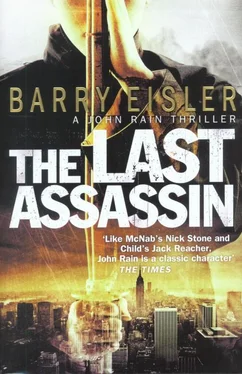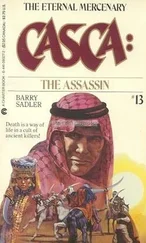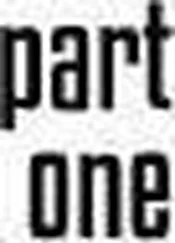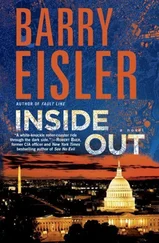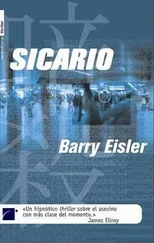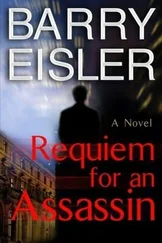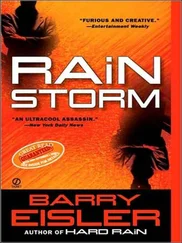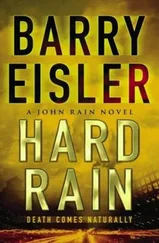Kanezaki arrived on time, stepping off a Shinjuku-bound train with a medium-sized blue duffel slung over his shoulder. He was wearing a dark suit and, but for something detectably western in his posture and gait, could have been just another young Japanese corporate samurai.
He saw me and headed over. I scanned the other people who had gotten off the train. I noted no problems.
He put the duffel down and we shook hands. The bug detector my late friend Harry had made for me slumbered in my pocket. Kanezaki was clean.
'How've you been?' he asked.
'All right,' I said, looking him over. 'You?'
'Fine.'
'How's the Global War on Terrorism?'
He smiled. 'These days we call it the Global Struggle Against Violent Extremism.'
I liked that he didn't get defensive. Not so long before, he would have taken my derisiveness personally. I wondered if his people knew how capable he was becoming. Probably not.
'Yeah, GWOT just wasn't a winning acronym,' I said. 'I'm sure it'll go better now that you've renamed it.'
He chuckled. 'You want to tell me what all the hardware's for? And who you're working with? Two of this, two of that, it's not like you.'
I looked at him. Yeah, he was capable. But maybe getting a little full of himself, too.
'You're charging me a "favor" for this,' I said, my voice cold, 'and now you're asking for freebies?'
He looked taken aback. 'I only meant…'
'Look, are we doing this as an exchange of cooperation and goodwill, or as a sales transaction?'
'I was hoping it could be both.'
'It can't. Choose one. And live with it.'
He was quiet for a moment. Then he said, 'Let me think about it.'
I shrugged. We were quiet again.
'Have you been in touch with Tatsu?' I asked.
'For a while, but not just lately. He's busy, I'm busy…'
'He's in the hospital.'
He looked at me, and the concern I saw was genuine. 'No. Nothing serious?'
'Gastric cancer. If you want to see him, he's at Jikei. But you better do it soon.'
'Oh, shit.'
'Go see him. He thinks of you as a kind of protégé, someone who can carry on his work. But he's too proud to say it.'
He nodded. 'Thanks for telling me.'
I shouldered the duffel. 'I'll be in touch.'
He held out his hand and, after a moment, I shook it.
'Be careful,' he said.
'Yeah,' I told him. 'I wouldn't want you to miss out on that favor.'
The drive to Wajima the next morning lasted about five hours. Japanese highways, burdened as they are by frequent and excessive tolls, tend also to be mercifully free of traffic. I used cash for the tolls, having declined the rental car company's offer to set me up with the latest in electronic collection technology. Electronic payment is too easy to track.
Along the way, we stopped at an abandoned building site to check out all the equipment. Dox had never used a C0 2rifle before, and the reason I had wanted more darts was so he could train with it. With only five darts in our arsenal, though, I felt we could spare only one for practice.
'Make it count,' I told him, as he took a prone position eighty meters away from an aluminum can I'd propped up at the top of a fence.
There was the soft crack of suddenly discharging compressed gas, and an instant later an answering ping eighty meters downfield. I looked through the binoculars and the can was gone. I started to tell Dox, but he already knew. He looked up at me and smiled. 'Shit, eighty meters,' he said. 'I could hit 'em with a rock from this close.'
Before getting back in the van, I used a toothbrush to comb some white liquid shoe polish into my hair. The polish gave a nice salt-and-pepper effect, far more pronounced than what had lately been creeping in naturally at my temples and over my ears, and would add ten years to a witness's description. A pair of hopelessly unstylish thick-framed nonprescription eyeglasses that I had picked up before leaving Tokyo completed the effect.
We arrived at Wajima at a little after noon, and I called the inn to see if I could check in. As expected, they asked if I could come at two. That was fine. It suggested that Yamaoto's men weren't there yet, either.
Dox and I spent the next hour and a half driving around, familiarizing ourselves with Wajima. The area was still pretty in places, I thought, but like much of Japan it was under siege from development. The native deciduous trees, orange and red in the chill air, were everywhere being cut down and replaced with monoculture cedar by the region's logging interests. What remained looked like a patchwork of native flesh half covered with green bandages that did nothing to stanch the wounds beneath. Everything was paved – riverbeds, hillsides, even the coast. It seemed that only the sea itself was free from the metastasizing onslaught of development, but as we drove along the coast I saw that some council or interest group or bureaucracy was in the midst of partially enclosing Wajima harbor with a giant wall of concrete. I thought of what Dox had said, about Americans professing to love peace but always waging war. Japanese maintain a traditional reverence for nature, but here they were entombing all traces of it in a concrete sarcophagus. At what point would this culture have to look in the mirror and admit that its traditional love of nature had become a living lie?
When we had seen as much as was useful from the van, we parked so I could have a look around on foot. Dox wanted to get out, too, but accepted that in sleepy Wajima, his white face and outsized frame would eclipse his ordinarily strong cloaking skills. He lay down in back while I set out underneath a cold sky darkening with rain clouds.
The town felt tired to me. I saw much gray hair and no children, although I imagined the latter must exist somewhere. The local economy seemed to be on a subsistence diet of foresting, fishing, and farming, supplemented by a trickle of tourists taking the waters and returning home with gifts of locally made lacquerware.
I walked down to the harbor, my shoulders hunched against a bitter sea breeze. The road in was hemmed on both sides with detritus from the fishing industry – torn nets, broken ballast, rusted-out crab traps. Much of it was covered in blue tarpaulins that blanketed the shapes beneath like trembling shrouds. Everywhere there were gulls, cooing and cawing. Beyond the debris, scores of small fishing boats rose and fell, creaking against their moorings, their tangled rigging skeletal against the scudded horizon. A crushed coffee cup skidded past my feet, impelled by the wind, and a cold mist started down from the sky and in from the water.
They might have been planning to meet here, but I doubted it. The layout was too confusing, for one thing; people might be around, for another. I headed east along the coast. Giant concrete tetrapods lay at the water's edge like unexploded ordinance from a long forgotten war. The mist was getting heavier and the clouds darker, and I sensed we were in for a storm.
Past the tetrapods, I came to some sort of park that was being used as a staging ground for further construction. Trucks were parked here and there and I saw piles of cement and girders and similar materials. A wide grassy field gave way to dirt, and dirt gave way to open water. Here, I thought, they're going to do it right here. It's perfect. And perfect sniping ground, too. I used the camera we'd bought in New York to take pictures from various angles, then went back to the van so I could walk Dox through the terrain.
We finished going through the pictures just before two o'clock, and I drove us to the inn. It was a small, three-story structure separated from the sea by the narrow coastal road and a short embankment of grass. I parked in the lot behind the building. 'You going to be all right?' I asked Dox. 'I don't know when Yamaoto's people are going to arrive. It might be a while.'
Читать дальше
